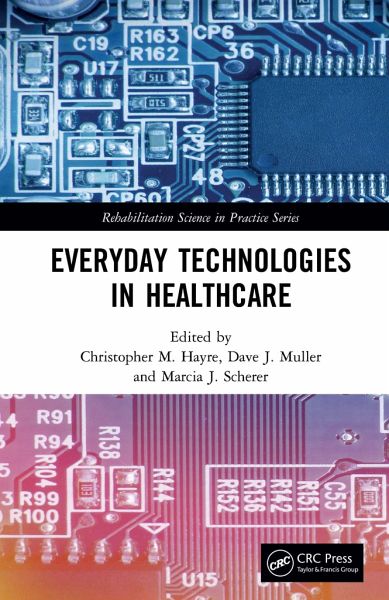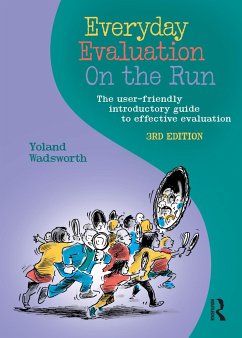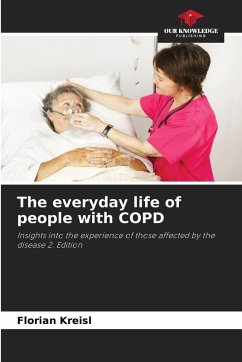
Gebundenes Buch
Everyday Technologies in Healthcare
Versandkostenfrei!
Versandfertig in 1-2 Wochen

PAYBACK Punkte
66 °P sammeln!




This text will draw on expertise of leading medical practitioners and researchers who utilise technologies to enhance patient outcomes. Research and practical evidence will be presented with a strong applied emphasis to further enhance the use of everyday technology within an array of specialisms in medicine.
Dr. Hayre is currently a lecturer in diagnostic radiography at the University of Suffolk. He has published both qualitative and quantitative refereed papers in the field of diagnostic radiography. He founded the Journal of Social Science & Allied Health Professions and remains Editor-in-Chief. He is currently writing a book chapter surrounding sustainable practices in medical imaging and is currently a visiting lecturer at the Odisee University in Brussels. Professor Muller is currently Editor of the CRC series with Professor Marcia Scherer on Rehabilitation Science in Practice. He was founder Editor of the Journal Aphasiology and is currently Editor in Chief of the Journal Disability and Rehabilitation. He has published over forty refereed papers and has been involved either as Series Editor, Editor or author of over fifty books. He is a visiting Professor at the University of Suffolk, United Kingdom. Marcia Scherer is a rehabilitation psychologist and founding President of the Institute for Matching Person & Technology She is also Professor of Physical Medicine and Rehabilitation, University of Rochester Medical Center where she received both her Ph.D. and MPH degrees. She is a past member of the National Advisory Board on Medical Rehabilitation Research, National Institutes of Health, and is Editor of the journal Disability and Rehabilitation: Assistive Technology. Dr. Scherer is Fellow of the American Psychological Association, American Congress of Rehabilitation Medicine, and the Rehabilitation Engineering and Assistive Technology Society of North America (RESNA). Dr. Scherer has authored, edited, or co-edited nine books and has published over seventy-five articles in peer-reviewed journals as well as thirty book chapters on disability and technology. Her research has been cited more than 4500 times by others.
Produktdetails
- Verlag: CRC Press
- Seitenzahl: 382
- Erscheinungstermin: 12. September 2019
- Englisch
- Abmessung: 240mm x 161mm x 25mm
- Gewicht: 737g
- ISBN-13: 9781138491700
- ISBN-10: 1138491705
- Artikelnr.: 57732226
Herstellerkennzeichnung
Libri GmbH
Europaallee 1
36244 Bad Hersfeld
gpsr@libri.de
Für dieses Produkt wurde noch keine Bewertung abgegeben. Wir würden uns sehr freuen, wenn du die erste Bewertung schreibst!
Eine Bewertung schreiben
Eine Bewertung schreiben
Andere Kunden interessierten sich für











